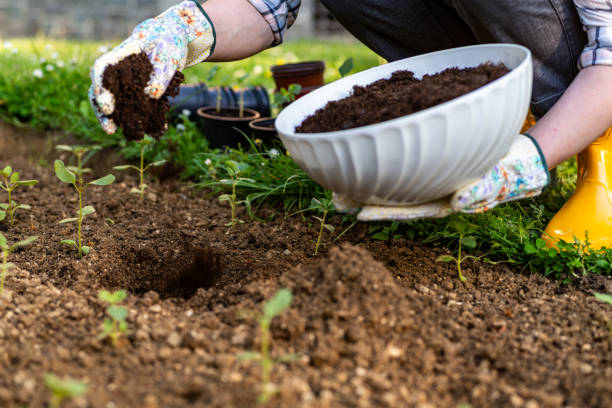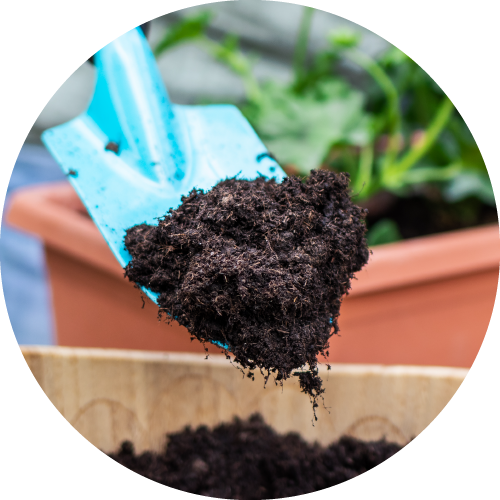Vermicompost: A Natural Fertilizer for Healthy and Sustainable Plant Growth

vermicompost is a natural, eco-friendly fertilizer made through the breakdown of organic waste by earthworms. These worms consume biodegradable materials like vegetable peels, farm residues, dried leaves, and animal manure, digesting them and excreting nutrient-rich castings known as vermicast. This compost is dark, fine-textured, and rich in essential plant nutrients such as nitrogen, phosphorus, potassium, calcium, and magnesium. It also contains beneficial microorganisms that improve soil health and fertility, making vermicompost a valuable input for sustainable agriculture and gardening.
One of the major benefits of vermicompost is its ability to improve soil structure and water retention. It enhances aeration, promotes better root development, and supports the soil’s ability to hold moisture, reducing the need for frequent irrigation. Vermicompost also boosts microbial activity, which helps in the efficient breakdown of organic matter and better nutrient availability to plants. It encourages stronger germination, healthier growth, and improved flowering and fruiting in a wide variety of plants.
Being completely organic and biodegradable, vermicompost is safe for the environment and non-toxic to plants, animals, and humans. It offers a sustainable alternative to chemical fertilizers, helping maintain long-term soil productivity without pollution or harm to ecosystems. Vermicompost can be used in kitchen gardens, farms, nurseries, potted plants, and landscaping. Whether applied directly to soil, mixed with other media, or used as a top dressing, it is a cost-effective and sustainable solution for healthy plant growth and environmental conservation.

How to Use Vermicompost
- Prepare the Soil: Loosen the topsoil in your garden bed, pot, or field to ensure better aeration and mixing of vermicompost.
- Apply Vermicompost: Spread 1–2 inches of vermicompost over the soil or mix it into the top 4–6 inches for best results.
- For Planting: While sowing seeds or transplanting seedlings, add a handful of vermicompost into each hole or along the rows.
- Use as Top Dressing: Apply vermicompost around the base of established plants to improve nutrient supply and boost plant health.
- Water Gently: After application, water the area to help nutrients absorb into the soil and support microbial activity.
- Repeat Regularly: Reapply vermicompost every 3–4 weeks or as needed during the growing season to maintain soil fertility.
Benefits of Vermicompost
- Rich in Nutrients: Contains essential nutrients like nitrogen, phosphorus, potassium, calcium, and magnesium that support plant growth.
- Improves Soil Structure: Enhances soil texture, porosity, and aeration, promoting healthier root development.
- Increases Water Retention: Helps soil hold moisture for longer, reducing the need for frequent watering.
- Boosts Microbial Activity: Introduces beneficial microorganisms that aid in nutrient absorption and improve soil fertility.
- Eco-Friendly and Non-Toxic: Made from organic waste, vermicompost is biodegradable, safe for the environment, and free from harmful chemicals.
- Suppresses Pests and Diseases: Naturally helps protect plants by improving soil health and reducing the risk of plant diseases.
- Supports Sustainable Farming: A renewable resource that reduces dependency on chemical fertilizers and promotes organic agriculture.
- Reusable and Long-Lasting: Vermicompost can be reapplied regularly and improves soil health over time without degradation.




